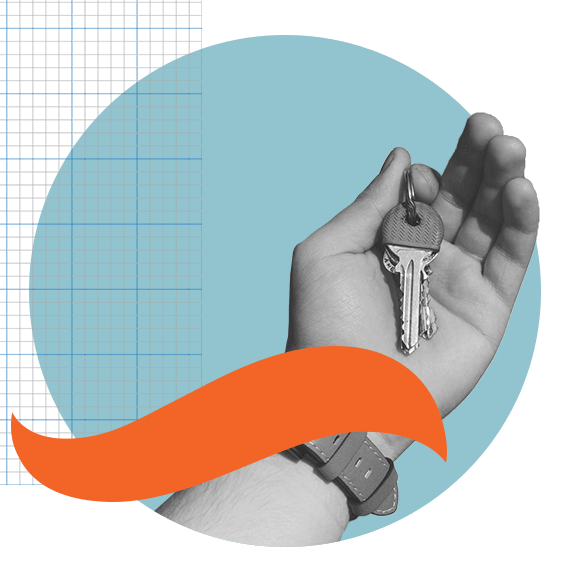Commercial property


The right deal is essential
Commercial [kuh-mur-shuh l] Making or intended to make a profit. That’s exactly what we’ll try and help you to do. Make a profit from your commercial property. Whether you’re a newbie or a seasoned entrepreneur, have a look at the information and resources below to help get you on your way.

Borrowing on the house
The saying, ‘safe as houses’ is certainly applicable here. This is because banks will almost always look for bricks and mortar to secure lending on a business.
- Banks will also seek a General Security Agreement (GSA) from the business which gives security over cash flow. If the Balance Sheet of the business is strong enough this may allow you to take the house out of the equation and remove that risk.
- From the bank’s point of view, having a house as security de-risks the lending. It gives them a fall back position if something should go wrong.
- From your point of view, property secured lending will have a lower interest rate, because of the lower risk. GSA lending terms are usually higher interest rate and limited to 3-7 year terms. Property Secured lending usually allows terms of up to 25 years.
- Remember, interest on business lending is tax deductible which will increase savings within the business.
Giving up your house as security can be a daunting prospect. But our team can help you every step of the way to make sure you’re fully informed and making the right decisions.
Buying a small business
Owning a small business is certainly the dream of many. Imagine the freedom. The control. The stress (well maybe not that part). Regardless it’s a great dream to work towards. We’ll help you fund a business, but we’ll also probe and test your assumptions. A few of us have been around the block a few times and have learned a thing or two about the risks and pitfalls.
Before you take the leap, there are a lot of factors to consider, especially when you're after finance to support your venture. Here are just a few of them.
How is the purchase price payable?
Is it all up-front? Is it performance based (Earn-Out). Effectively is something in place to ensure that the business continues to perform how it previously has.
Some businesses sales are set up for a part payment after 6 / 12 months based on the performance of the business since acquisition. This makes sure you have some protection against any future curve balls.
What’s the purchase price of the business based on?
Check with the vendor if a business valuation has been done or is it based on an assumed multiplier of the EBITDA.
What on earth is the EBITDA?
It stands for Earnings Before Interest, Tax, Depreciation and Amortisation. And it’s a measure of a company’s operating performance. Basically, it’s a way to evaluate the performance of a company without having to factor in financing or accounting decisions or the tax environment. It can be useful for comparing the profitability between companies.
Is the existing owner going to stay in the business?
It’s important to know up front what the handover plans are. Is the existing owner staying (if so, in what capacity?) or selling up and leaving you on your own straight away? Both scenarios have their pro’s and con’s depending on the business.
If a Business Owner is leaving the business right away or after 12 months how are those relationships and expertise they have built protected? Have you put a Restraint of Trade in place?
Effectively you don’t want the previous owner setting up shop around the corner and regaining their previous customers from your new business.
What's your plan?
It’s important to have a clear plan. There are a few questions you need to ask yourself:
- Once you buy the business, will you be stopping your existing employment to focus on your new venture full time, or is the business an additional source of income?
- What experience do you have in the industry? Do you have enough working knowledge or are you making a career change as well as an employment change?
- What experience do you have in running a business? Maybe you’re a newbie or maybe you’ve been running small businesses since your first lemonade stand outside your parents’ place.
In order to apply for a small business loan, banks will need to know the above information and then some. Full historical financials would be required along with forecasts and banks may also require a business plan to help illustrate your future expectations of the business and any potential risks.
It’s a lot to take in, but with the team on your side we can help you work out the EBISU from the EBITDA.
Know the basics
First up, a loan on a commercial property will be across a shorter term. Usually between 10 – 15 years paying principle and interest. You will also require a deposit of about 30 – 35%. You will also be paying commercial interest rates. The way these are calculated is using a base rate plus a margin. How much margin is determined by the level of risk in the deal.
How risky is the deal?
As mentioned, to determine the final interest rate applicable to the loan, the bank will assess how risky the deal is. The lower the risk, the lower the rate.
To do this, banks will look at the strength of the existing and/or future lease. Things like a well known, long term reliable tenant will go a long way to de-risking a deal. If the lease is reliant on a small business it won’t be viewed as favourably. Basically, the stronger the lease the more the bank is able to de-risk which drives down your interest rate.
Often with commercial property, if you’re able to go slightly bigger in order to get a stronger tenant then you’ll be better off in the long run. Long term stability is hugely important in commercial property as the value is determined by the rental income it generates.
How safe is the building?
Given the events of recent years, commercial properties may need to have a seismic evaluation done. This could start off with an IEP report (Initial Evaluation Procedure) and may end up with a DEE report (Detailed Engineering Evaluation) which will outline what needs to be done and how much it will cost. The ideal number with regards to earthquake strength is 66% but the higher the score the better.
So what's the latest in the commercial space?
Read the latest happenings around commercial lending on the Squirrel blog.
All articlesCommercial and development pricing explained
Working with development and commercial property funding, price is often an obstacle that I come up against. Many pe...

What's happening with commercial lending?
Squirrel is often talking about tight credit conditions in terms of residential property, but what’s happening in th...
Trade Finance: how you can improve your cash flow
The world has come a long way since the days of the cheque book; we can move cash in an instant. Conversely it still...





